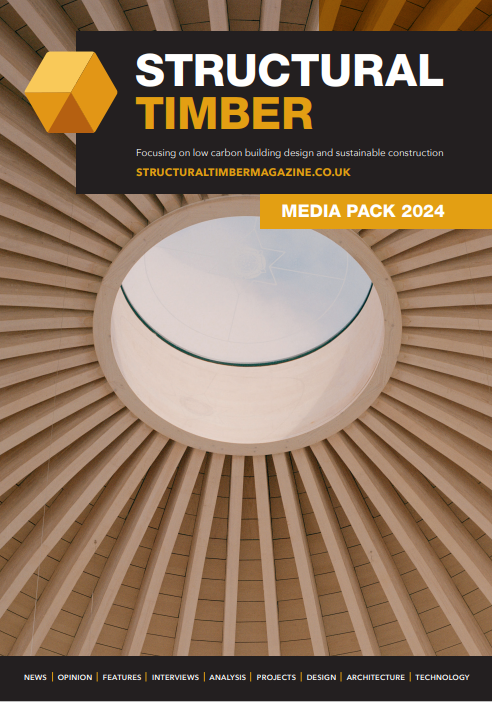Sustainability Goes Beyond the Environment
Nic Clark, Board Member for the Structural Timber Association (STA) and Managing Director of KLH UK, shares some thought-provoking ideas on attracting the right talent to sustain the future of the structural timber industry.
Discussions surrounding sustainability generally focus on the reduction of carbon emissions, the responsible sourcing of materials, recycling and eliminating waste – which are all vitally important. However, sustainability goes beyond the environment. With construction experiencing good levels of growth, the major issue facing the industry is the ageing workforce and declining numbers of new talent entering the sector. The lack of traditional construction skills hit the headlines on virtually a daily basis and the offsite industry is hailed as the solution to overcome this problem but to remain at the forefront of innovations in structural timber, we need to attract the brightest and best to sustain our national heritage in timber construction.
Great timber engineers are well regarded and highly valued but in the main, applications for these posts come from overseas. Clearly outside the UK timber engineering is a profession of choice – so why does this role not broadly appeal to home grown talent, especially when it’s the UK that leads to world in great reference projects? Is it simply, that this career option is not widely promoted by colleges and universities? Or could it be that colleges and universities are having trouble recruiting offsite industry experts to teach the next generation of structural engineers. I suspect it is a bit of both.
So, there’s the dilemma – what’s the solution? We in the industry need to take responsibility, after all it is in our own interest – greater collaboration is needed with education providers to explore ways to engage directly with students. Nothing new here. The Class of Your Own industry support learning programme and the Adopt A School scheme – have been running for some time and are gaining some traction at a local level.
How about a more radical approach? We are familiar with 106 Agreements, for those who are not – these are often referred to as 'developer contributions’, putting back something into the community where the development is taking place.
So why does the government not place the same obligation on education projects? This could be via key criteria placed on contractors via the procurement processes or even by allowing to offset any existing 106 Agreements by making key contributions to professional construction courses? This would not only provide a recruitment solution but also offer construction industry professionals the ideal opportunity to inspire the next generation of engineers and architects together with helping to develop the specialist skills that the offsite industry requires such as design for manufacture process manager and digital construction manager. By sharing our expertise, we will get the best opportunity to engage directly with students to promote the diverse range of career options available within the structural timber sector.
The KLH team involved in the development at Canterbury University, provided students within the Canterbury School of Architecture with a CPD on solid wood construction. All parties found the experience extremely beneficial – we were able to motivate and inspire young architects at the very start of their design and construction journey. The journey could start even earlier with work experience placements or site visits for students in secondary education, we have enough schools still being built to cater for this. Maybe the perceptions held by younger people are predicated on outdated construction practices and conditions. We have some fantastic examples of how we are creating tomorrow’s built environment, new techniques such as cloud surveys and the use of VR and construction offers a very broad and rewarding career opportunity.
To sustain and advance the structural timber construction industry, we need radical ideas to help alleviate the issues facing education providers in recruiting those with industry experience, who can attract much higher salaries than is the norm in the teaching profession. Getting more involved provides a win-win situation for all.
Nic Clark, Board Member
Structural Timber Association













